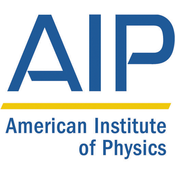 A new report from the American Institute of Physics finds that African Americans are making no progress in increasing their percentage of faculty in the field of physics. The report found that in 2004, Blacks made up just 2.0 percent of the physics faculty members at U.S. colleges and universities. By 2008, there was slight improvement to 2.2 percent but since then there has been a slight reduction back to 2.1 percent.
A new report from the American Institute of Physics finds that African Americans are making no progress in increasing their percentage of faculty in the field of physics. The report found that in 2004, Blacks made up just 2.0 percent of the physics faculty members at U.S. colleges and universities. By 2008, there was slight improvement to 2.2 percent but since then there has been a slight reduction back to 2.1 percent.
The report determined that there were 190 Blacks teaching in physics departments at colleges and universities nationwide. About half of African-American physics faculty members are employed by physics departments at historically Black colleges and universities, which account for only 4 percent of all physics departments. Half of all African-American physics faculty members work at just 23 departments at HBCUs.
The full report, African Americans & Hispanics Among Physics & Astronomy Faculty: Results from the 2012 Survey of Physics & Astronomy Degree-Granting Departments, was authored by Rachel Ivie, Garrett Anderson, and Susan White. It may be downloaded by clicking here.


A couple colleagues and I were discussing the issue of a person with a doctorate in engineering or physics from an HBCU obtaining a tenured track position at one of the top U.S. universities. The three of us teach at California public universities in engineering and we believe that it would be very difficult for an HBCU doctoral graduate to obtain a tenured position at a top U.S. university in engineering and/or physics. Since there is not enough space to go into detail here we hope your readers will continue the dialogue on this subject.
What is the difficulty HBCU graduates will have? Are you suggesting that the graduates are not adequately prepared or they will be discriminated against simply because of the institution they attended?
For the commenters–most black PhDs earn their doctorates at predominately white institutions. I agree that it has been difficult for those who earned their doctorates at hbcus to land tenure track positions–I don’t think that’s unique to any race or gender. It is hard for any new PhD in physics to secure a tenure track position. Many are doing 3+post docs.